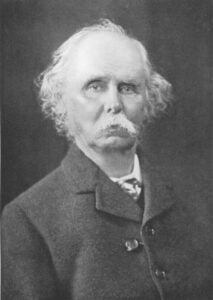Economics is a science of choice-making.
Introduction to Marshall Definition

Marshall definition of Economics was the first to challenge Adam Smith’s definition. Dr. Alfred Marshall (Born. 26 July 1842, Died 13 July 1924) was the first Economist, who denied the wealth-related definitions of Adam Smith, which was in vogue for a long time, in his two books published in 1890 named Principles of Economics and Economics of Industry, and declared them wrong, and defined it as not the study of human welfare. He gave, ‘Man’ the first place and Wealth’ as secondary and clarified that wealth is for man and man is not for wealth. Wealth is not the ‘End’, it is only a ‘Means’ to attain welfare. He presented the definition of Economics in this manner in his book ‘Economics of Industry’.
However, Marshall’s definition was also criticized later by a renowned Professor of ‘London School of Economics, Prof. Leonel Robbins in his book ‘An Essay of the Nature and Significance of Social Science‘ in 1932.
Marshall Definition Of Economics
Economics is the study of human activities in the ordinary course of business. It studies how man attains his income and how he utilizes it. In this way, it studies wealth, on one hand, and on the other hand, it is a part of the study of man, which is more important.
According to this definition, it becomes the science of human activities instead of the science of wealth. In his second book, “Principles of Economics”, Dr. Marshall defined it in these words
Economics is the study of humans, in relation to the ordinary business of life. It studies that portion of the personal and social activities, which are closely related to the attainment of material resources, related to welfare and its utilization.
Salient Features
Greater Emphasis on Human Aspect
Marshall has given balanced importance to Means and Ends, through his definition. He has stated in clear words, that it is on one hand is the study of wealth and on the other hand, more important to this is the study of the human aspect. In this way, he removed the defect of ignorance of the human aspect, in the old views of Adam Smith’s time, and gave more emphasis to the human aspect in clear words.
Material Welfare
Marshall in his definition gave more importance to the means of material gains or material welfare. According to him, it studies, those material resources, on which welfare depends. In this way, Marshall accepted the material welfare aspect. Other famous economists like – Pigou, Cannon, Beveridge, etc. also supported it.
Study of Social, Normal and Real Persons
According to Marshall, economics studies only social, normal, and real persons. The study of persons living outside the society or in forests, who are unusual, alone and abnormal, is not done in it. The activities of unusual persons like – an nonsensical, a miser, a saint or Mahatma, etc. are said to be outside the area of the subject matter of economics. According to Marshall, it studies the economic activities of only the social, normal, and real persons.
Study of the Ordinary Business Activities of Life
In his definition, Marshall paid emphasis to the Ordinary Business Activities. These ‘ordinary business activities’ refer to those economic activities, which are related to the attainment and utilization of wealth. In this manner, Marshall gave a clear place, to human economic activities.
Practical Point of View
Marshall adopted a more practical point of view, in defining economics, He gave equal importance to both theoretical and practical aspects of economic activities, and accepted the scientific and artistic aspects of economics.
Simple and Clear Definition
The definition given by Marshall is very simple and clear. According to him, economics studies the activities of earning and expending wealth by man.
